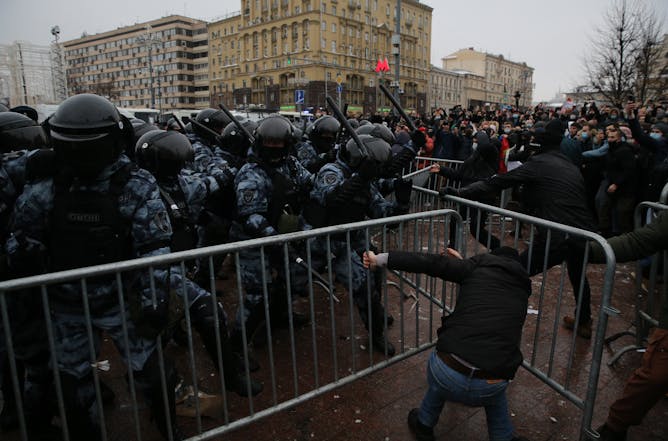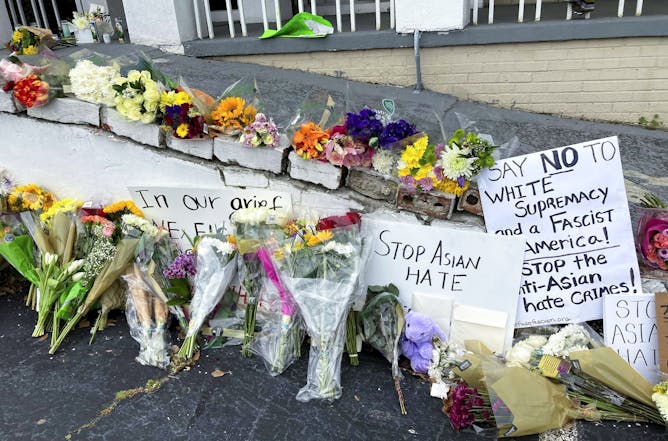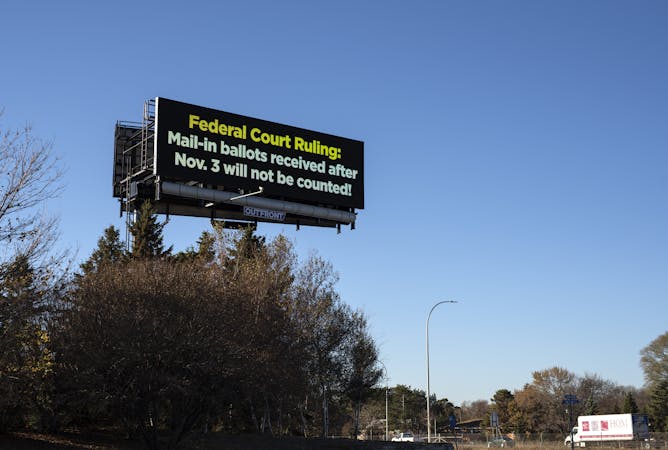|
Usually when I write the introduction to the weekly politics newsletter, I concentrate on a theme or particular incident or issue that’s shown up in the week’s coverage.
This week, though, our coverage ranged across many different topics, and they couldn’t be raked easily into a pile. Yet there is a unifying aspect to all these stories: They take you behind the headlines and provide context and background to help you understand current events better.
So, as Russian opposition leader Alexei Navalny became ill and was sent to the hospital ward of the remote penal colony where he is imprisoned, we gave you a story by University of Dayton human rights law scholar Shelley Inglis that looked at whether imprisonment of opposition leaders helps an autocrat stay in power – or whether it ignites popular rage that topples a leader.
Women’s studies scholar Trysh Travis from the University of Florida looked at the alleged Atlanta shooter’s explanation for his rampage and how that fits into the ways Americans think about compulsive behaviors – considering them the results of temptation and treating them as diseases.
And even though most daily reporters dropped the story after the November 2020 election, we followed up on probably the most bitterly fought issue of that election: absentee ballots. Election law expert Richard Pildes performed a post-election audit, looking at – after all the drama of absentee deadlines – how many voters were actually affected. My late mother’s version of the answer would be simply “bupkes.” Pildes is a little more precise, and says very few were, and “nowhere near close to the number of votes that could have changed the outcome of any significant race.”
|

Russian police officers beat people protesting the jailing of opposition leader Alexei Navalny, Jan. 23, 2021 in Moscow.
Mikhail Svetlov/Getty Images)
Shelley Inglis, University of Dayton
And there's not too much the rest of the world can do to stop them.
|

A makeshift memorial to the victims of the Atlanta spa shooting shows both grief and outrage.
AP Photo/Candice Choi
Trysh Travis, University of Florida
The story of the alleged Atlanta shooter highlights the two most common ways Americans think about compulsive behaviors – considering them the results of temptation and treating them as diseases.
|

One billboard outside Bloomington, Minnesota: A sign warns voters about a recent federal court ruling about absentee ballot deadlines.
Stephen Maturen/Getty Images
Richard Pildes, New York University
The fight over absentee ballot deadlines in the November 2020 election was bitter and prolonged. Now, an election law scholar looks at how those ballots affected the presidential race.
|
|
|
-
Stephanie Leiser, University of Michigan
The corporate tax was created on the principle that people and companies should be taxed based on what they receive in benefits – and US corporations have received an awful lot.
-
Tharaphi Than, Northern Illinois University
What began in the 1940s as a revolutionary army created to liberate Myanmar from British colonial rule soon turned repressive. The country has been a military dictatorship on and off since 1962.
-
Charlotte Alexander, Georgia State University
Men accused of sexual harassment, including New York Gov. Andrew Cuomo, often refer to their accomplishments in their responses. Their power is their defense, and it blinds them to their victims' suffering.
-
Jennifer Ho, University of Colorado Boulder
White people are the main perpetrators of anti-Asian racism and violence, but white supremacy is still the problem when Blacks and Latinos attack Asians.
|
|